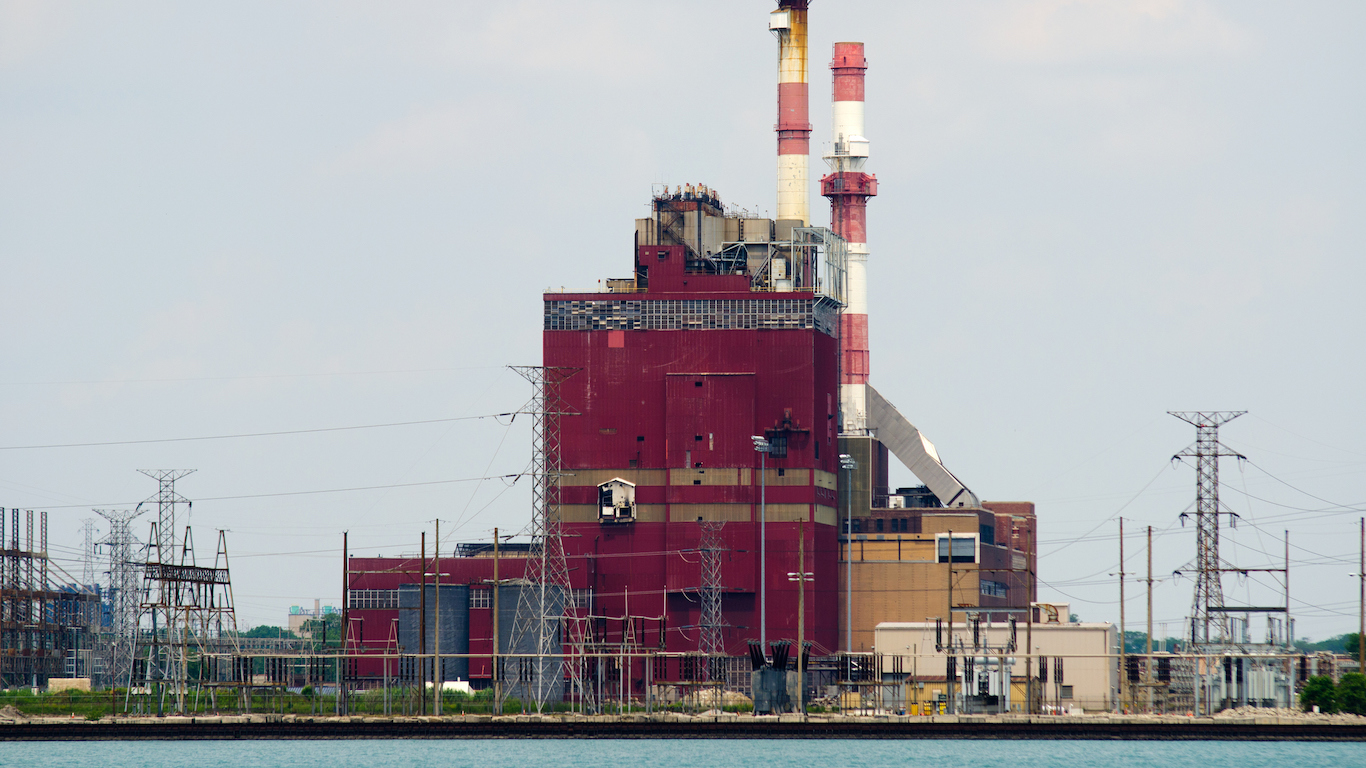
After a year like 2023, investors are probably still taking the proverbial victory lap, and with good reason, with the Nasdaq up a stunning 43% and the S&P 500 up 24%. However, the tide could turn this year, and the fact that inflation remains sticky, as evidenced by the January consumer and producer price index report, may be part of the reason.
While interest rates probably start to come down by the summer or, at the latest, the fall, one sector that was a victim of rising rates in the last two years may be a benefactor if they decline again this year: utility stocks. Everyone needs power, regardless of the economy.
We screened our 24/7 Wall St. utility stock research univers and found five top companies that are buy-rated on Wall Street and pay reliable and significant dividends to shareholders.
American Electric Power
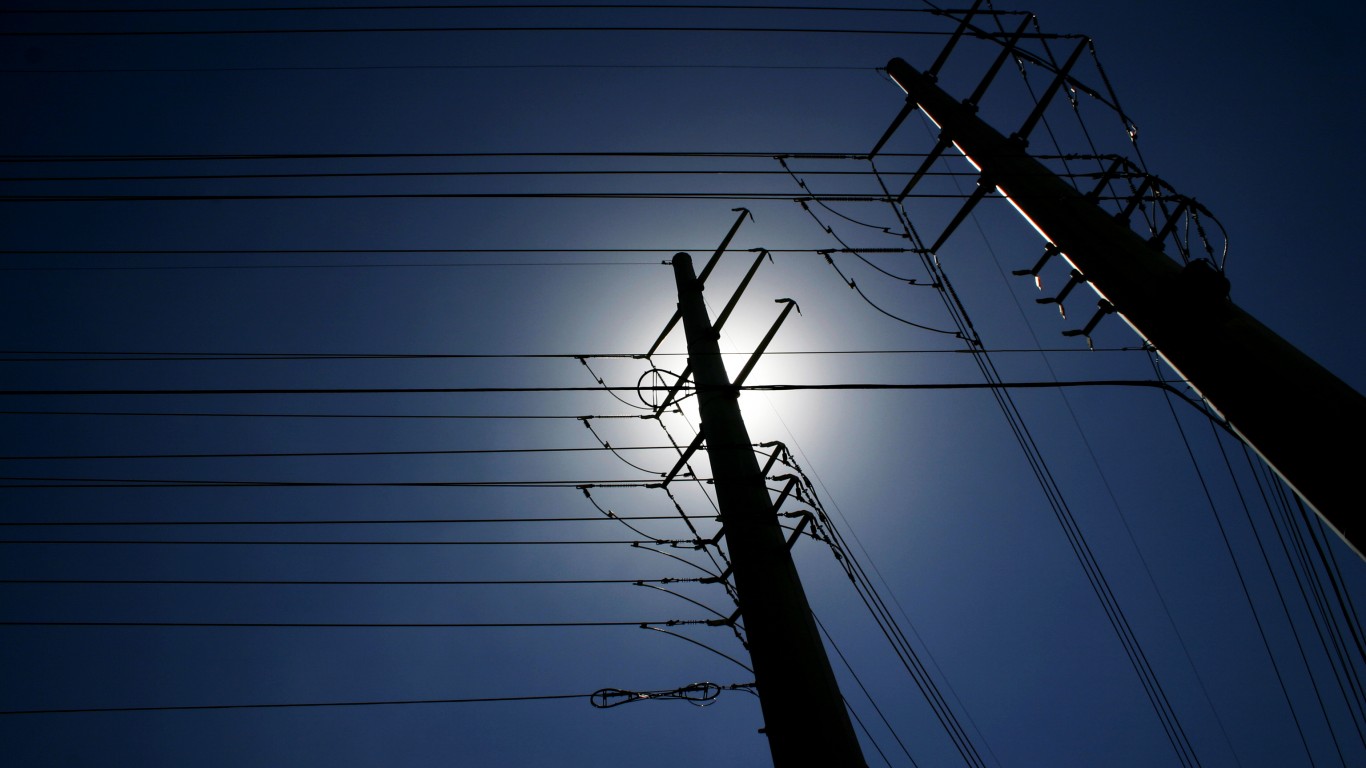
This industry-leading utility pays investors a hefty 4.14% dividend. American Electric Power Co., Inc. (NYSE: AEP) is an electric public utility holding company that generates, transmits, and distributes electricity for sale to retail and wholesale customers in the United States.
It operates through
- Vertically Integrated Utilities
- Transmission and Distribution Utilities
- AEP Transmission Holdco
- Generation & Marketing segments
The company generates electricity using:
- Coal
- Lignite
- Natural gas
- Renewable energy
- Nuclear energy
- Hydro,
- Solar energy
- Wind and other energy sources
It also supplies and markets electric power wholesale to other electric utility companies, rural electric cooperatives, municipalities, and other market participants.
Northwest Natural Holding

The company has provided essential services for over 165 years.
This off-the-radar utility stock suits worried conservative investors and pays a solid 5.28% dividend. Northwest Natural Holding Company (NYSE: NWN), through its subsidiary, Northwest Natural Gas Company, provides regulated natural gas distribution services to residential, commercial, industrial, and transportation customers in Oregon and Southwest Washington.
The company also operates:
- 5.7 billion cubic feet of the Mist gas storage facility contracted to other utilities and third-party marketers
- Offers natural gas asset management services
- Operates an appliance retail center.
In addition, it engages in gas storage, water, non-regulated renewable natural gas, and other investments and activities.
The company provides:
- Natural gas service through approximately 786,000 meters in Oregon and southwest Washington,
- Water services to approximately 786,000 meters in Oregon and southwest Washington, and
- Water services to roughly 80,000 people through approximately 33,000 water and wastewater connections in the Pacific Northwest and Texas
Dominion Energy
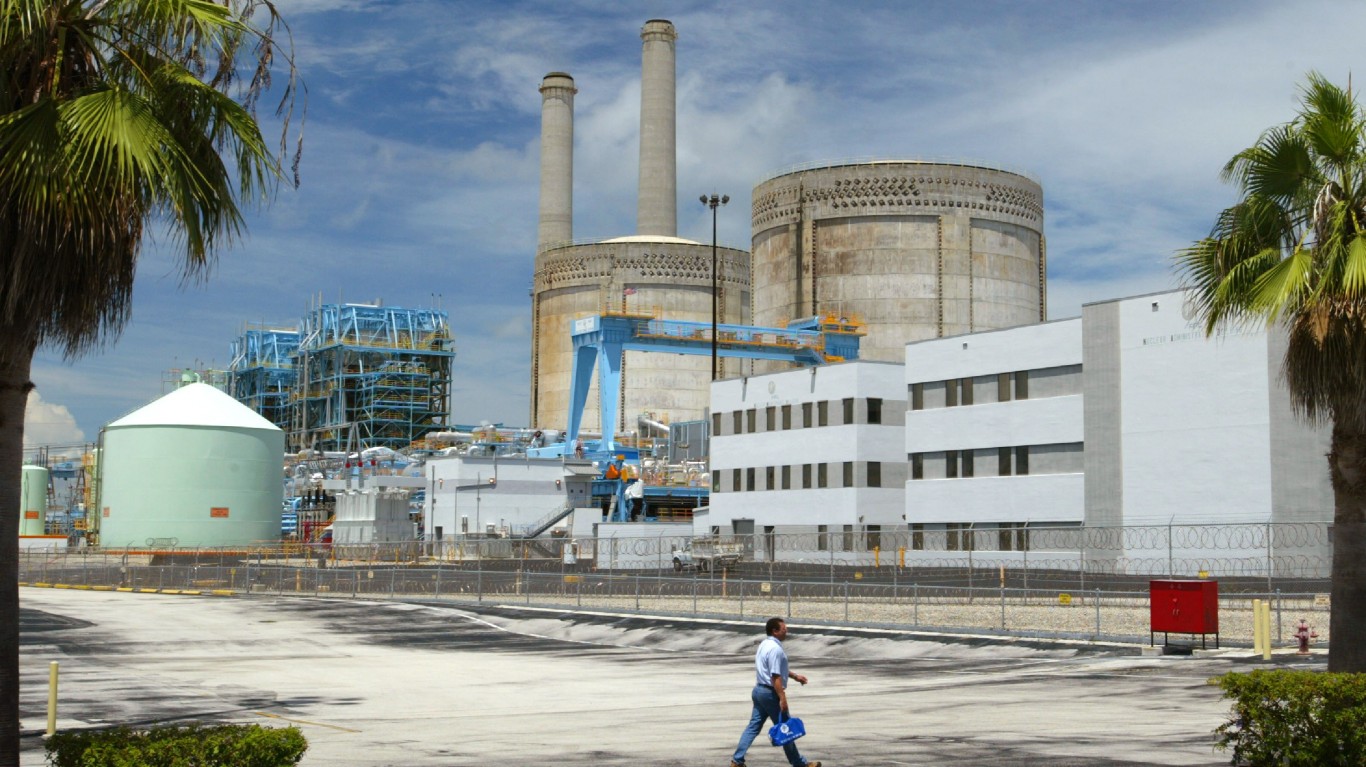
Many of the Wall Street firms we cover are still very positive on utilities, and this company pays a strong 5.96% dividend.
Dominion Energy, Inc. (NYSE: D) operates through four segments:
- Dominion Energy Virginia,
- Gas Distribution,
- Dominion Energy South Carolina, and
- Contracted Assets.
The Dominion Energy Virginia segment generates, transmits, and distributes regulated electricity to residential, commercial, industrial, and governmental customers in Virginia and North Carolina.
The Gas Distribution segment engages in
- Regulated natural gas gathering
- Transportation
- Distribution and sales activities
- Distributes nonregulated renewable natural gas
This segment serves residential, commercial, and industrial customers.
The Dominion Energy South Carolina segment:
- Generates
- Transmits
- Distributes electricity and natural gas to residential, commercial, and industrial customers in South Carolina.
The company’s portfolio of assets included approximately:
- 30.2 gigawatts of electric generating capacity
- 10,500 miles of electric transmission lines
- 85,600 miles of electric distribution lines
- 94,200 miles of gas distribution lines
- Dominion serves approximately 7 million customers.
Duke Energy
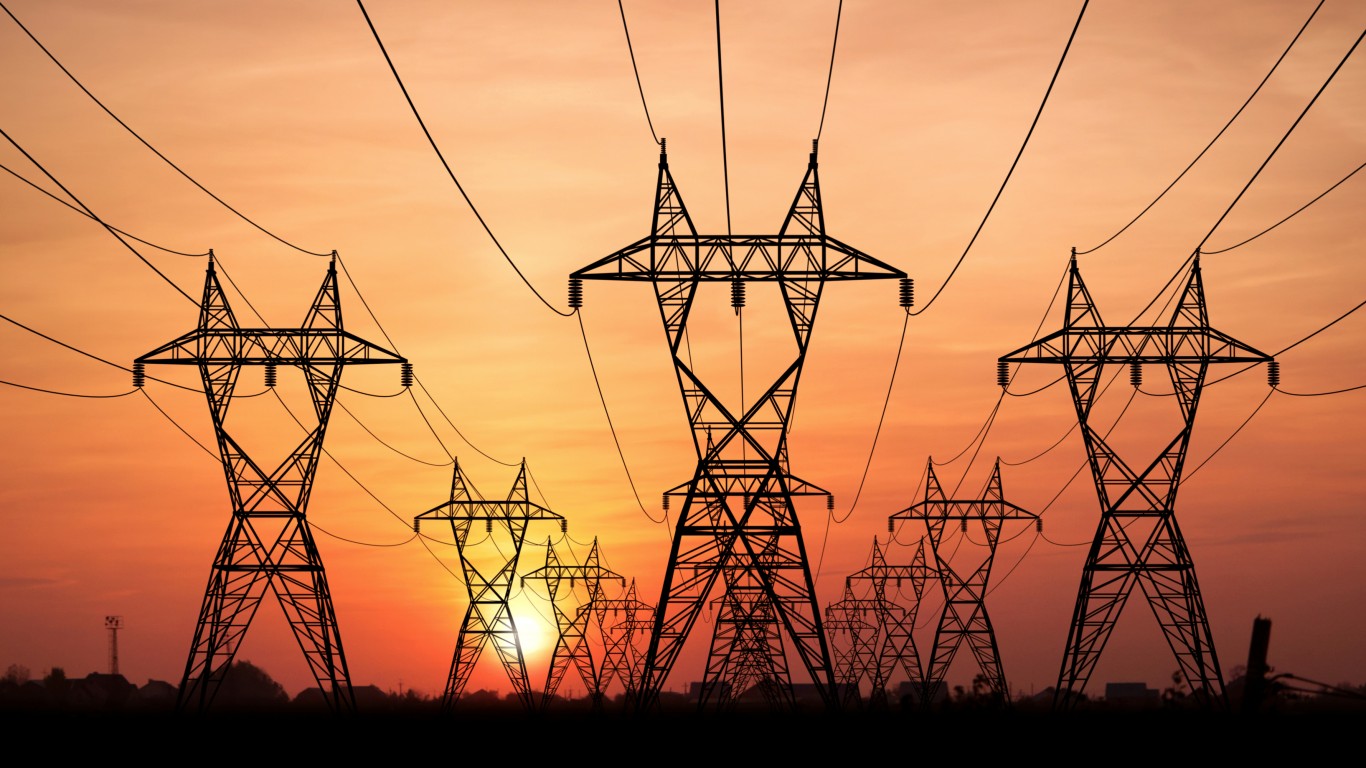
This is an excellent idea now, located in a growing part of the country and paying a hefty 4.51% dividend. Duke Energy Corporation (NYSE: DUK) and its subsidiaries operate as an energy company in the United States.
It operates through two segments:
- Electric Utilities and Infrastructure (EU&I)
- Gas Utilities and Infrastructure (GU&I).
The EU&I segment generates, transmits, distributes, and sells electricity in the Carolinas, Florida, and the Midwest.
To develop electricity, Duke Energy uses the following:
- Coal
- Hydroelectric
- Natural gas
- Oil
- Solar and wind sources
- Renewables
- Nuclear fuel
This segment also sells electricity to municipalities, electric cooperative utilities, and load-serving entities.
The GU&I segment distributes natural gas to
- Residential
- Commercial
- Industrial
- Power generation natural gas customers
The segment also invests in pipeline transmission projects, renewable natural gas projects, and natural gas storage facilities.
Entergy
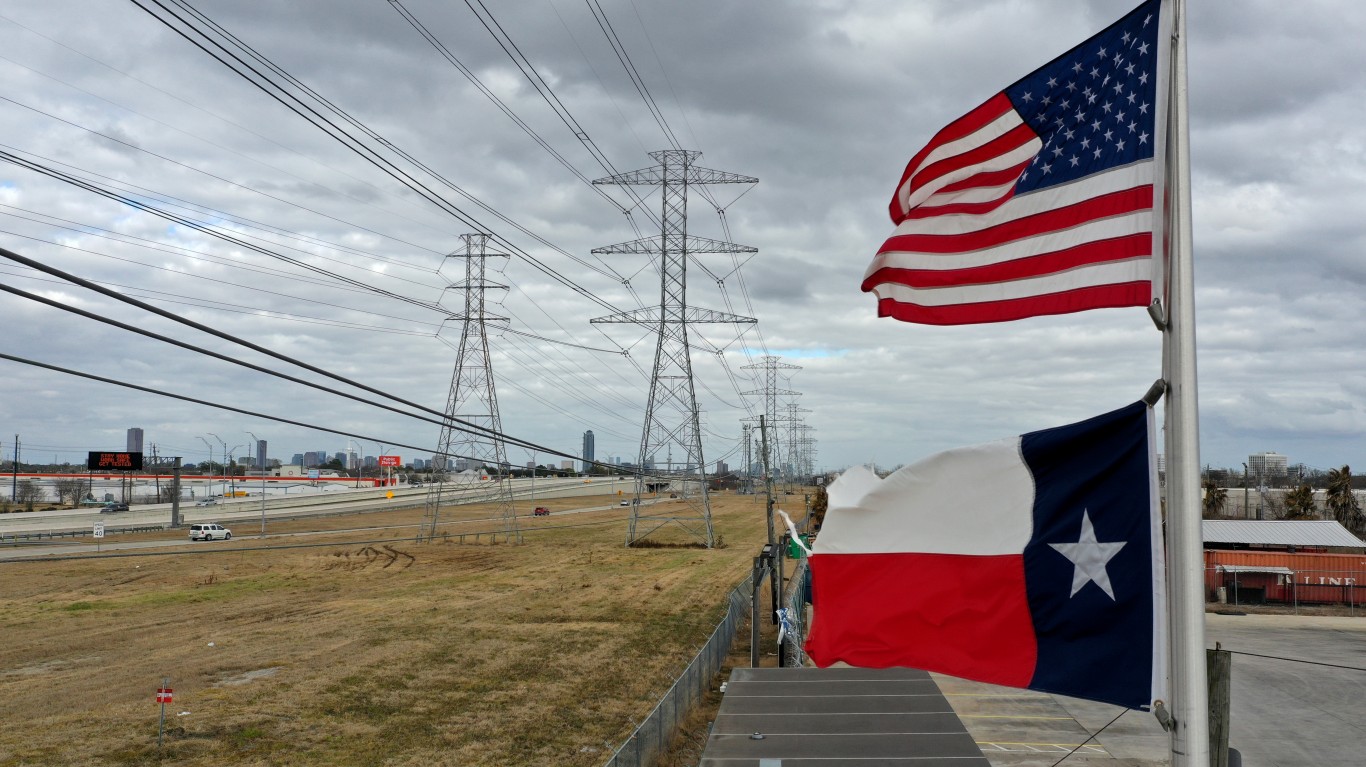
This top utility stock always makes sense for conservative investors and pays a rich 4.50% dividend. Entergy Corporation (NYSE: ETR) produces and distributes electricity in the United States with its subsidiaries.
It operates in two segments:
- Utility
- Entergy Wholesale Commodities
The Utility segment generates, transmits, distributes, and sells electric power in portions of:
- Arkansas
- Louisiana, including the City of New Orleans
- Mississippi
- Texas
It also distributes natural gas.
The Entergy Wholesale Commodities segment is involved in:
- The ownership, operation, and decommissioning of nuclear power plants located in the northern United States
- Sale of electric power to wholesale customers
- Provision of services to other nuclear power plant owners
- Ownership of interests in non-nuclear power plants that sell electric power to wholesale customers
The company generates electricity through gas, nuclear, coal, hydro, and solar sources. It sells energy to retail power providers, utilities, electric power co-operatives, power trading organizations, and other power generation companies.
Its power plants have approximately 24,000 megawatts (MW) of electric generating capacity, which includes 5,000 MW of nuclear power.
The company delivers electricity to 3 million utility customers in Arkansas, Louisiana, Mississippi, and Texas.
Take Charge of Your Retirement In Just A Few Minutes (Sponsor)
Retirement planning doesn’t have to feel overwhelming. The key is finding expert guidance—and SmartAsset’s simple quiz makes it easier than ever for you to connect with a vetted financial advisor.
Here’s how it works:
- Answer a Few Simple Questions. Tell us a bit about your goals and preferences—it only takes a few minutes!
- Get Matched with Vetted Advisors Our smart tool matches you with up to three pre-screened, vetted advisors who serve your area and are held to a fiduciary standard to act in your best interests. Click here to begin
- Choose Your Fit Review their profiles, schedule an introductory call (or meet in person), and select the advisor who feel is right for you.
Why wait? Start building the retirement you’ve always dreamed of. Click here to get started today!
Thank you for reading! Have some feedback for us?
Contact the 24/7 Wall St. editorial team.





